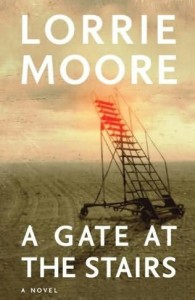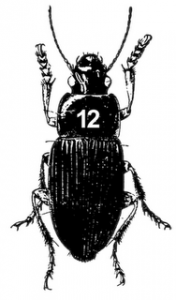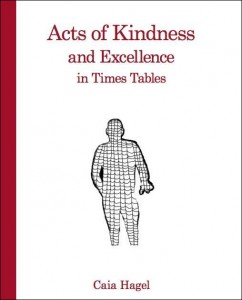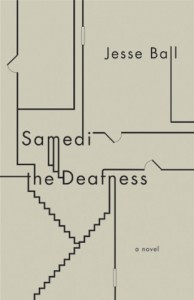 Earlier this week, C. Baxter came to the UNL English department to talk about style in fiction writing—specifically lushness. Those of you who read this blog who were at Bread Loaf this past summer (tally = 0?) heard this same lecture (and I believe the pretty stunning short story, “Mr. Scary”, he read later in the evening). For everyone else, here’s a recap as best my scribbly notes can give me.
Earlier this week, C. Baxter came to the UNL English department to talk about style in fiction writing—specifically lushness. Those of you who read this blog who were at Bread Loaf this past summer (tally = 0?) heard this same lecture (and I believe the pretty stunning short story, “Mr. Scary”, he read later in the evening). For everyone else, here’s a recap as best my scribbly notes can give me.
C.B. began immediately by listing all the problems inherent in putting together a talk about lushness in art. He called it “nearly impossible” for a number of reasons:
- most writers today are not interested in lush styles
- the style as pretty much departed from the literary scene, unless some senior universally admired writer (DeLillo, Morrison, McCarthy) does it
- lushness gets vetoed in creative writing workshops, usually
Vis-a-vis the mention of McCarthy above, CB admitted that while he is often lush w/r/t violence in his books, he is spare and cold when it comes to “intimate emotions.”
So a stab at definition. Lushness is not romantic or embarrassing or manipulative or stupid. It is not showing off on the page. It’s not purple prose. It does seem to want something from you. “However,” CB argues, “every style wants something from you.” By way of definition, CB played S. Vaughn’s cover of B. Strayhorn’s blues tune “Lush Life”, an example of what CB called the “It’s 2am and I’m completely fucked” genre of music. Pinning down certain sounds of the music and vocals and certain passages of the lyrics, he came to three distinct features/elements of lushness:
- It comes from a fever, not a chill.
- It is the result of unstable self-dramatization
- the key one: it superimposes the past onto the present through lyric expansion.
Another musical example before the literary ones, this time from Rachmaninoff’s “Symphonic Dances”, which incorporates in its first movement an Eb alto saxophone—the first time Rach. used the instrument. CB passed out the sheet music to the piece, which was considerate of him, and we followed along as this very new instrument (the piece dates from the ’30s I think) played what felt like a very old-country melody. And it was a heartbreaking melody. And CB called it lush, pointing out that it was lush only when played on the sax; the effect of it being along the lines of “I’ve never been so lonely.” Later, when the melody is picked up by the entire string section, the lushness is diluted, resulting in a kind of absurd “We are all lonely in the exact same way.” This was maybe one of the keenest insights of the whole talk, this difference in emotional engagement we feel in solo v. group voices.
So it’s the old superimposed on the new, the past and the present blended together. Lushness is not nostalgia, nor does it require a nostalgic frame of mind to exist. Lushness is, however, the signature style of nostalgia; you cannot be nostalgic without it. The bulk of CB’s talk, then, turned to a close reading and analysis of ways writers can superimpose past on the present. First up was his own bad example, made bad because it is the default move every writer first makes when confronted with the following puzzle: How can you indicate that something in a scene is making a person think about the past?
The answer tomorrow, or soon.
 This weekend N & I were in Oak Island, N.C., where my sister got married. I did the ceremony. You may as well prepare for a long post on all this. It was, maybe, a once-in-a-lifetime event: getting to the write the words that people listen to while they watch a couple ceremonially join their lives. People seemed to like what I came up with, and it was fun standing there and being in charge and just feeling only happiness when they kissed right in front of me, and then it was over.
This weekend N & I were in Oak Island, N.C., where my sister got married. I did the ceremony. You may as well prepare for a long post on all this. It was, maybe, a once-in-a-lifetime event: getting to the write the words that people listen to while they watch a couple ceremonially join their lives. People seemed to like what I came up with, and it was fun standing there and being in charge and just feeling only happiness when they kissed right in front of me, and then it was over.
 It helps to have schtick when yer online, but
It helps to have schtick when yer online, but 
 Given what Ball had given
Given what Ball had given